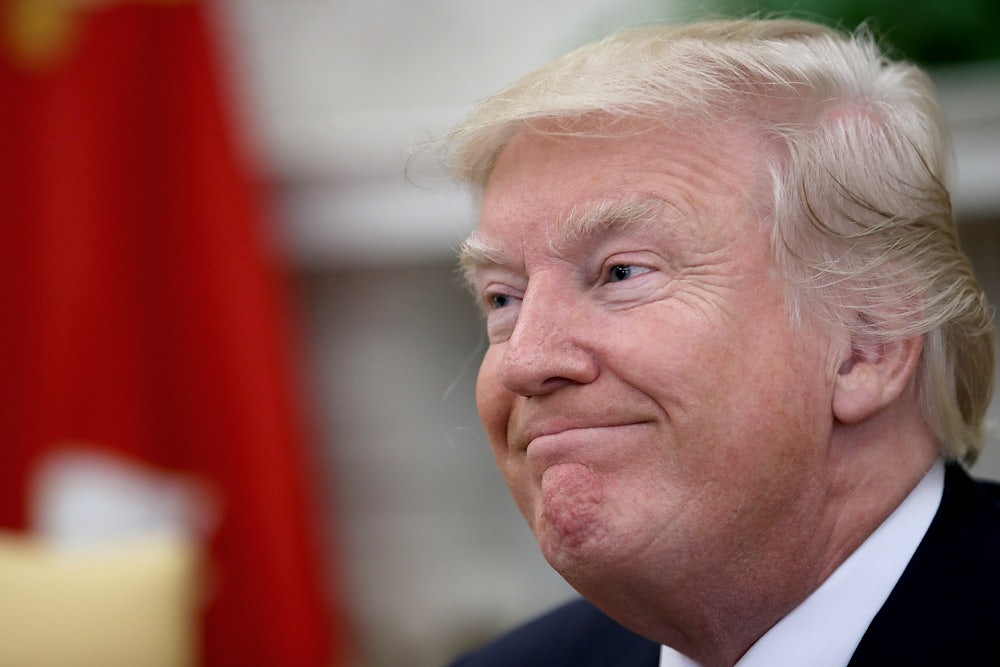On Wednesday morning, Donald Trump returned to a familiar argument. What matters isn’t the polls, or the news reports outlining a historically incompetent White House, or the unprecedented sequence of resignations and upheaval in the administration—what matters is the one true indicator of presidential performance, the stock market.
Stock Market has increased by 5.2 Trillion dollars since the election on November 8th, a 25% increase. Lowest unemployment in 16 years and..
— Donald J. Trump (@realDonaldTrump) October 11, 2017
...if Congress gives us the massive tax cuts (and reform) I am asking for, those numbers will grow by leaps and bounds. #MAGA
— Donald J. Trump (@realDonaldTrump) October 11, 2017
It would be really nice if the Fake News Media would report the virtually unprecedented Stock Market growth since the election.Need tax cuts
— Donald J. Trump (@realDonaldTrump) October 11, 2017
In Trump’s version of reality, the media is avoiding discussing the stock market because it proves that he’s actually doing a good job as president. Reporting on the stock market’s performance Trump suggests, would undercut the media’s narrative, which is that Trump is a congenital narcissist in way over his head. Trump is wrong about media coverage of the stock market’s ongoing rally. But he’s right that it has boomed since the election.
As many people have pointed out, Trump has been in office for less than a year and inherited a market that was in very good shape. Even if he could lay claim to this bull market, the influence presidents have over the stock market tends to be overstated. Traditionally, presidents have declined to take too much credit for these kinds of gains because they would logically then have to take credit for inevitable contraction. (Trump, however, has always ignored political rules like this—or, indeed, logic.) Never mind that less than half of all Americans own stocks and the market is not a great indicator of the overall health of the economy.
But the problem for Trump is not that he is being illogical or factually inaccurate: it’s that he is misjudging the political value of taking credit for the soaring stock market in the first place. This morning’s tweets suggest that Trump is trying to use the numbers as political capital to pass a massive tax cut for the wealthy, by arguing that the plan would further juice the market. But that argument obviously makes little sense—there’s little reason to pour gasoline on a raging fire. By taking credit for the stock market, Trump is undercutting his own argument for tax reform. If the stock market—and by extension, the economy—is doing well, why resort to a massive economic reorganization?
Trump is also discarding one of the arguments that got him elected in the first place. The argument here that he’s making is similar to one that many Democrats made in 2016, which was that the Obama economy was humming along nicely and that the economic recovery was largely complete. Trump’s pledge to speak for the “forgotten Americans” had obvious and extremely disturbing racial overtones, but there was an economic component as well: The stock market may have recovered from the 2008 collapse, but the recovery was uneven and far from complete. Trump would step in and make life better for his supporters. Now, by trying to own the current stock market boom—in addition to appointing a plutocratic and kleptocratic cabinet—Trump is ceding to Democrats a key economic argument that helped him get elected. One should never bet on Democrats’ political instincts—but it’s clear they’re paying attention.
